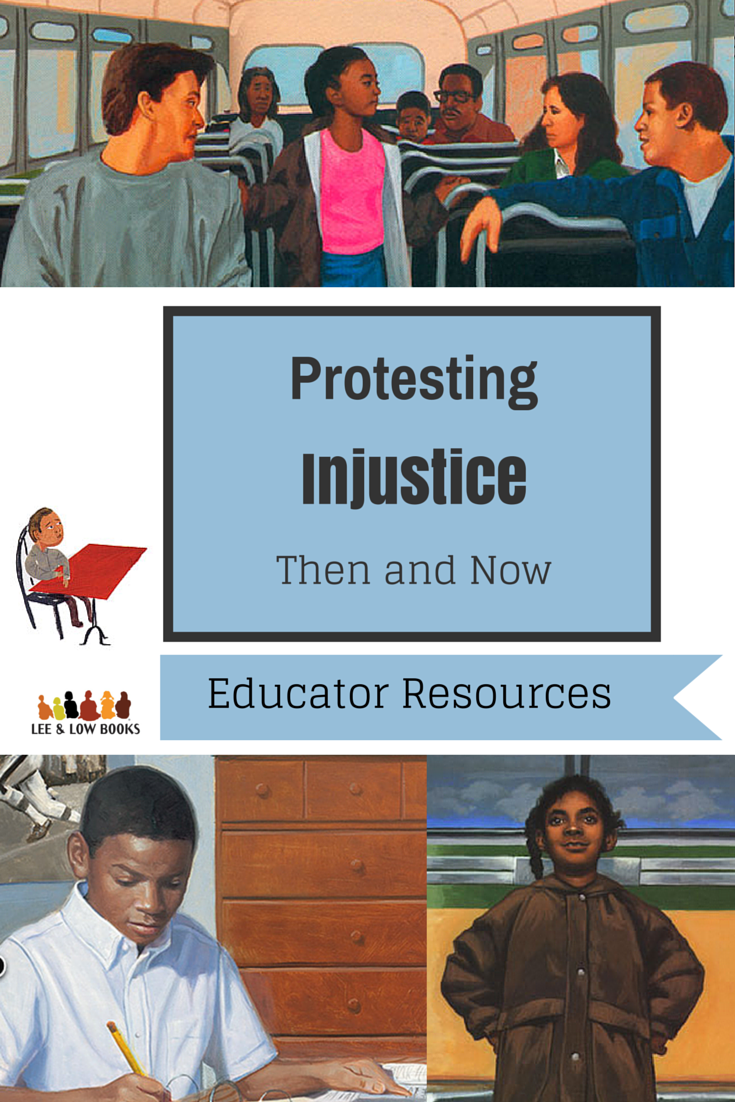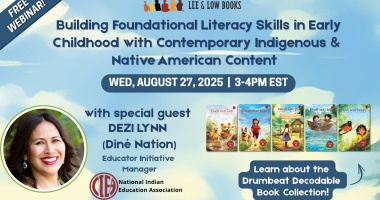In August we wrote to you about the death of Michael Brown in Ferguson, Missouri. Our publisher said then that the matter of representation was urgent; now, four months later, we see that urgency for what it is: a matter of life or death. Michael Brown’s name now sits alongside new names like Eric Garner, Tamir Rice, and Akai Gurley. How many more names will need to be added before things change?
Protests around the country remind us that we are not in a post- racial society, that inequality is still here. This can be a harrowing reminder, but it is also an important teachable moment for young people. How do we put current events in context and help young people engage in today’s big questions?
racial society, that inequality is still here. This can be a harrowing reminder, but it is also an important teachable moment for young people. How do we put current events in context and help young people engage in today’s big questions?
In difficult moments, books are often a good starting place for conversation. Books that touch on history can be read with fresh eyes in light of current events. For example, in Love to Langston, author Tony Medina describes when a seventh-grade Langston Hughes in 1914 peacefully protests his teacher’s segregation of black students to one row in the classroom. Even when he is expelled, Hughes fights for what he knows is right and his community joins beside him. The teacher is forced to integrate the classroom:
Jim Crow Row
from Love to Langston
By Tony MedinaIn the seventh grade
in Lawrence, Kansas
the teacher puts all
us black kids in the same row
away from all the white kidsI don’t roll my eyes
or suck my teeth
with a heavy heavy sigh
and a why why whyI make signs
that read
that readJim Crow Row
Jim Crow Row
we in the Jim Crow RowJim Crow is a law
that separates white and black
making white feel better
and black feel left backSo we protest
with our parents
and let everybody
know aboutJim Crow Jim Crow
not allowing us
to growJim Crow Jim Crow
don’t put us in a
Jim Crow Row
Whether it was this event or the lifetime of experiences of racism, Langston Hughes was profoundly transformed and wrote about and advocated for equality and justice throughout his life.
I, Too
By Langston Hughes
From the Poetry FoundationI, too, sing America.
I am the darker brother.
They send me to eat in the kitchen
When company comes,
But I laugh,
And eat well,
And grow strong.Tomorrow,
I’ll be at the table
When company comes.
Nobody’ll dare
Say to me,
“Eat in the kitchen,”
Then.Besides,
They’ll see how beautiful I am
And be ashamed—I, too, am America.
How will today’s children be impacted and awakened as activists by images of and participation in the protesting in Ferguson, New York City, and around the nation? In what ways will this moment and experience affect our children’s lens by which they view the world and influence their life’s purpose or calling? What art will they create to express this moment and themselves?
Further reading:
- How to Teach Beyond Ferguson from Edutopia
- Teaching Ferguson Syllabus from educators (also follow the hashtag #FergusonSyllabus on Twitter for more teaching ideas)
- Resources for Addressing Ferguson in the Classroom from Education Week
- Teaching About Ferguson: Race and Racism in the United States from Teaching Tolerance
- Teaching About Ferguson from Teaching for Change
- Ferguson in the Classroom from PBS NewsHour
- Lee & Low’s Thoughts on Ferguson
- Talking to Kids About Current Events and Conflicts
- 5 Books that Build Confidence in African American Children
Books on Protest:
- John Lewis in the Lead: A Story of the Civil Rights Movement
- Lakas and the Makibaka Hotel
- Dear Mrs. Parks: A Dialogue with Today’s Youth
- The Bus Ride
- Paul Robeson
- Love to Langston
- As Fast As Words Could Fly









